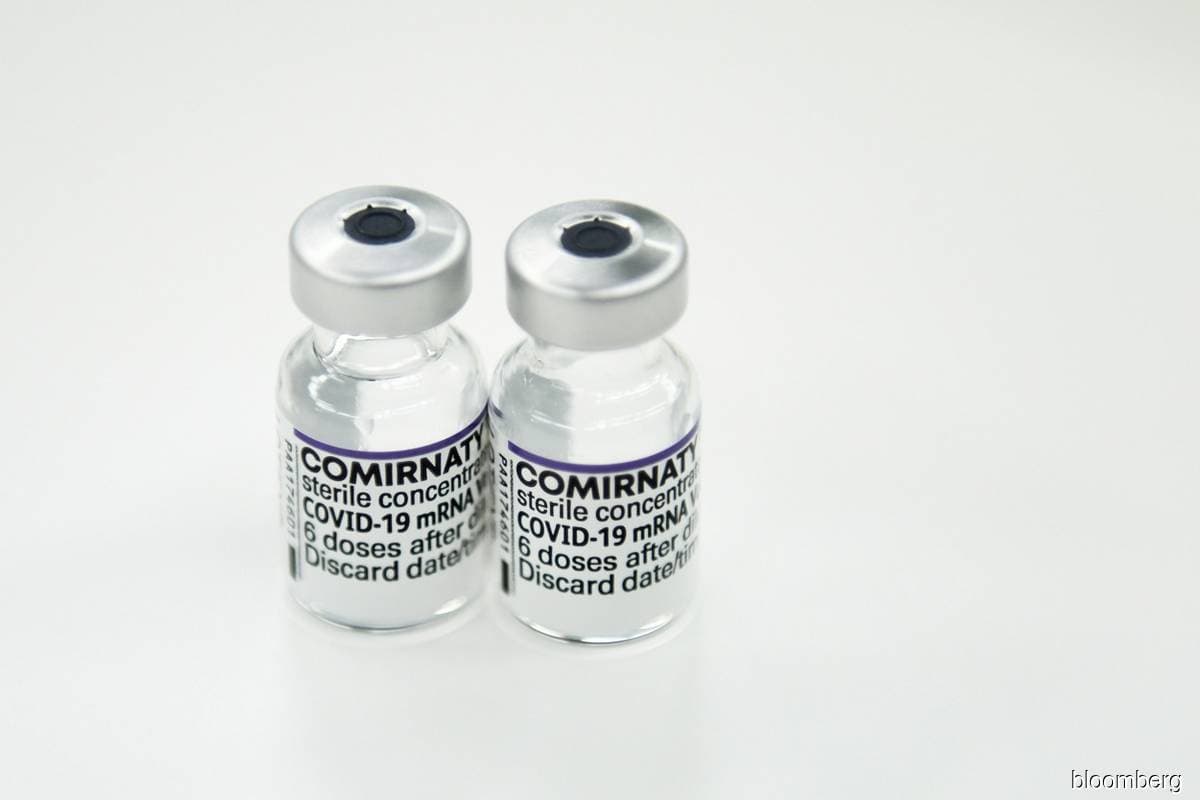
KUALA LUMPUR (Jan 6): Malaysia’s Drug Control Authority (DCA) has conditionally approved Pfizer's vaccine Comirnaty for the inoculation of children aged five to 11 years and a new formulation of the vaccine for those aged 12 years and above.
The children aged five to 11 years will receive a dose of 10 micrograms (mcg) Concentration for Dispersion for Injection, compared to the new 30 mcg dose of Comirnaty (Tris/Sucrose) formulation that adolescents will get, Health Minister Khairy Jamaluddin said.
"In addition, DCA has also approved the use of the Convidecia (Cansino) vaccine as a booster dose for persons aged 18 years and above at intervals of three to six months after the first dose of the same vaccine," Khairy said at a media conference on Thursday (Jan 6).
He also assured that the National Pharmaceutical Regulatory Division (NPRA) monitors the safety risks of all registered vaccines used in Malaysia, including the Covid-19 vaccines through the Adverse Effect Follow-up Immunization (AEFI) report.
Follow our Covid-19 vaccination tracker to see where we are in the race to herd immunity.
"AEFI surveillance was also conducted during the National Covid-19 Booster Vaccination Programme (PICK-B).
"Since the inception of the National Immunization Programme (PICK) until Dec 31, 2021, a total of 57,119,777 doses of Covid-19 vaccines have been administered, including 5,719,456 booster doses," he said.
In total, the NPRA AEFI reporting system received 24,042 AEFI reports, including 812 reports on booster doses of Covid-19 vaccines, Khairy said.
"The AEFI reporting rate for booster doses was 0.14 per 1,000 doses, compared to the overall AEFI reporting rate of 0.42 per 1,000 doses," he said.
"Fever, injection site pain, headache, and fatigue were among the most commonly reported adverse effects among vaccine recipients.
"Of the total AEFI reports received for this booster dose, only 38 reports (or 4.91%) were classified as serious, representing a reporting rate of 0.007 per 1,000 doses," Khairy said.
This story has been amended for accuracy